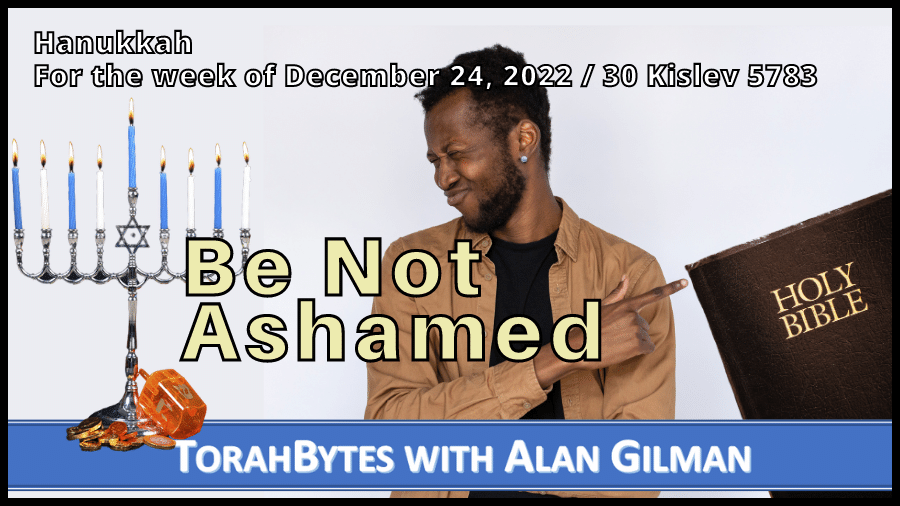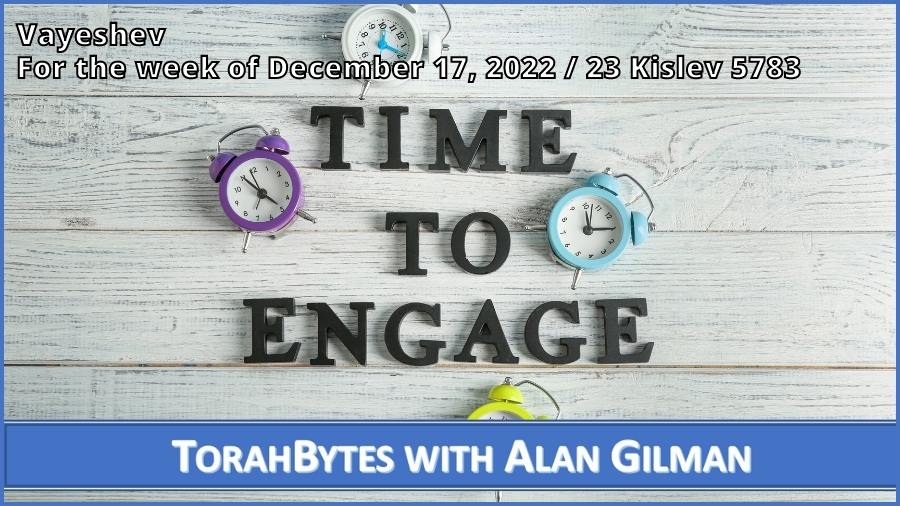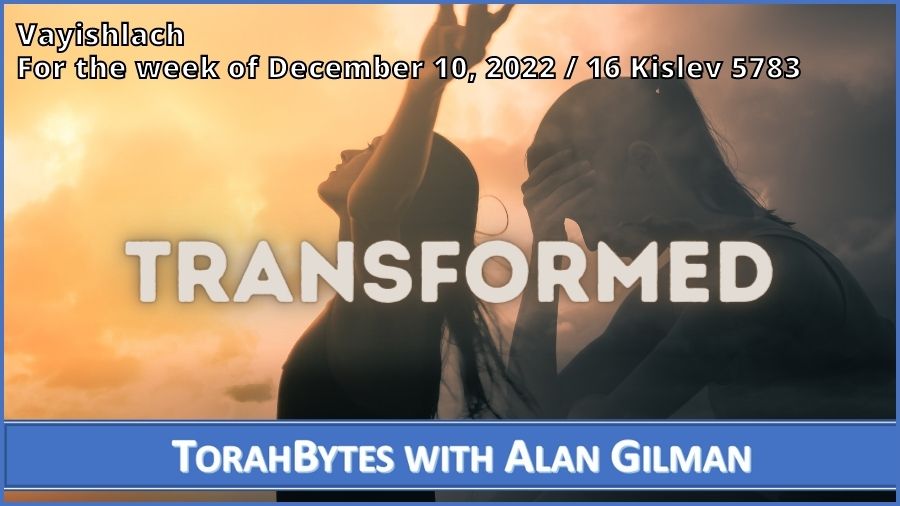For the week of December 24, 2022 / 30 Kislev 5783

Miketz/Rosh Hodesh/Hanukkah
Torah: Bereshit/Genesis 41:1 – 44:17; B’midbar/Numbers 28:9-15; 7:42-53
Haftarah: Zechariah 2:14 – 4:7 (English 2:10 – 4:7); Isaiah 66:1-24; 1 Samuel 20:18-42
Download Audio [Right click link to download]
Then he said to me, “This is the word of the LORD to Zerubbabel: Not by might, nor by power, but by my Spirit, says the LORD of hosts. (Zechariah 4:6)
Note: the following are some “final reflections” at the end of an extensive Hanukkah presentation I did recently, where I cover Hanukkah’s historical background, contemporary customs, and some important lessons we can learn. View video here.
In the days leading to Hanukkah, the Hellenistic (Greek) authorities, among other things, forbade the study of Torah. Will we see the Bible banned in our day? We might, but that’s not necessary, due to how much it has been shamed.
Over time we have been told that the biblical world is so different from ours that it’s become more and more difficult to see how what the Bible teaches can be relevant to today’s world. Many have become convinced that it was written at a time when misogynistic, “homophobian” racists walked the earth, and therefore the issues the Bible addresses have nothing to do with our supposedly far more enlightened world. We sit in judgement over the real and imagined sins of the past, while we congratulate ourselves for our superior morality. What then does the Bible have to teach us? We may seek to mine the Bible for encouragement and hope—we want to bolster our faith after all—but when it comes to life’s particulars: marriage and family, sexuality, business, politics, leisure, entertainment, what constitutes legitimate congregational life, and so on, many of us have left the Bible—the whole Bible—far, far behind.
Sure, we’re diehard fans of Yeshua (Jesus), but have become detached from the very written word that defined his person, his life, and his mission—a mission that has been extended to his followers, the God-given mandate to disciple the nations—a mandate entrusted to us by the Most High to instruct the world in his good and life-infused ways. Yet, when we get into the nitty gritty of Scripture, especially when it comes to Yeshua’s own Bible, the Hebrew Scriptures, the same Scriptures Paul said were not only breathed out by God but are also “profitable for teaching, for reproof, for correction, and for training in righteousness” that God’s people may be “complete, equipped for every good work”—when it comes to the fulness of those Scriptures, many of us have become what we might call “neo-Marcionites.”
Marcionism was an ancient gnostic heresy that, not only claimed that the Old Testament god was different from the New Testament god, but that the Old Testament is archaic and oppressive; replaced by a new and improved Covenant, a version of which neither Paul nor Yeshua would recognize. Instead of standing confident in his written Word, his entire written Word, we are often apologetic and ashamed of God’s ancient but enduring truth that is as relevant today as it was when it was first written.
But it needn’t stay this way. Like the Maccabees, we need to say, “enough is enough.” We need to take up the spiritual sword of God’s word. We need to ask God to teach us how to effectively wield it in our day. But first, we need to ask him to pierce our own hearts with it afresh, allowing ourselves to be taught by him—without shame and without fear—as he fills us with his words of life to, not only nourish ourselves, but to enable us to provide light to an ever increasingly dark world.
Scriptures taken from the English Standard Version

